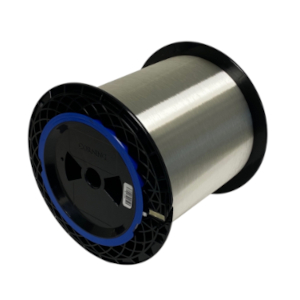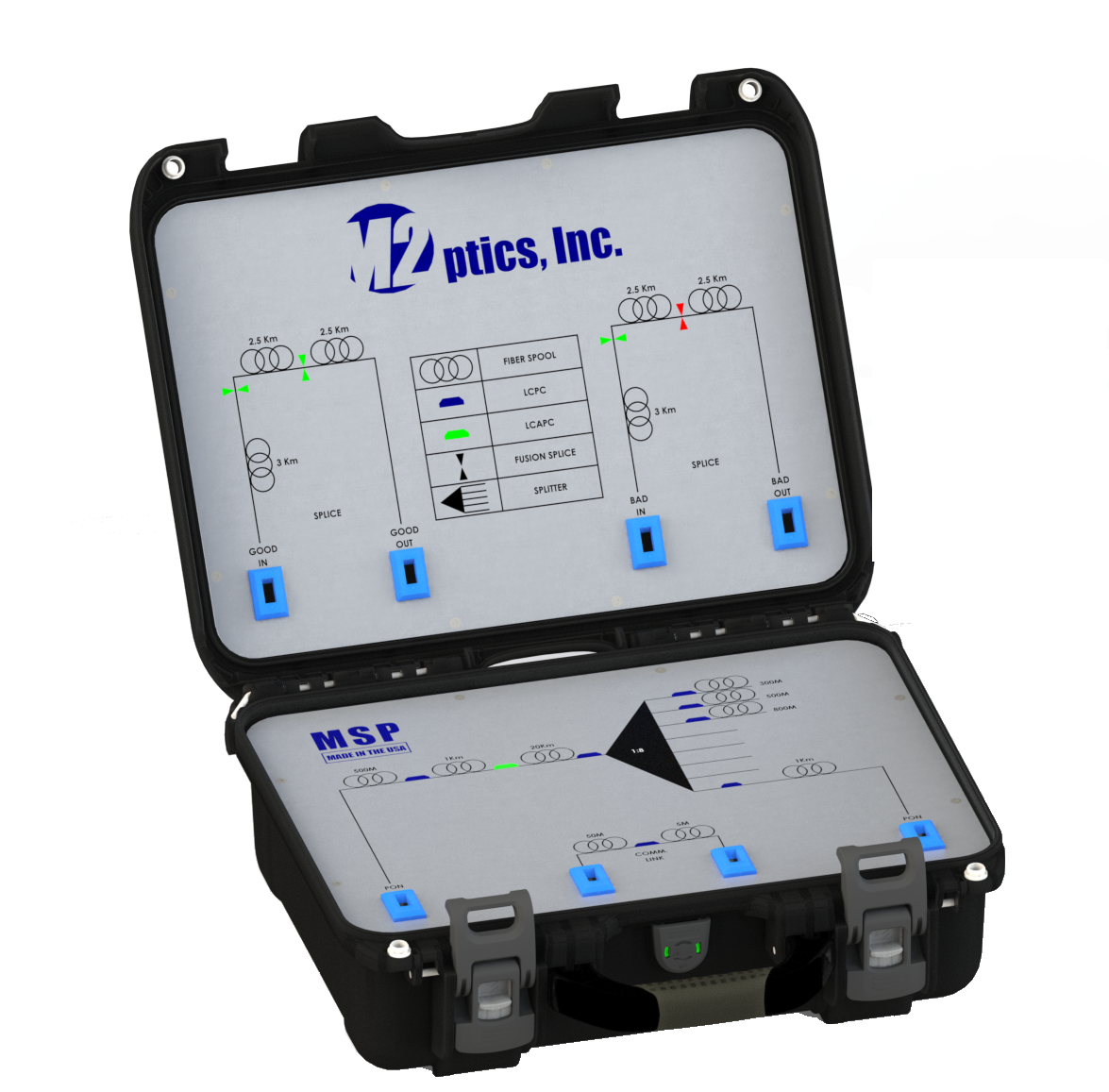For most people working in the fiber optic communications field, their experience with optical fiber involves using jacketed fiber optic cables. This includes network and data center infrastructure cabling, which may contain hundreds of fibers in each cable, as well as patch cables with fewer fibers used for connecting devices. Due to the multi-fiber nature of jacketed cables and network devices such as optical transceivers, which require a Tx/Rx fiber pair cabling connection, it's commonplace for many people to think of spooled bare optical fibers for network simulation testing and optical delay applications in a similar format. Additionally, since the fiber manufacturers provide maximum signal attenuation/loss specifications for a fiber, there is sometimes a misconception that the resulting performance will always be within that defined specification when using spooled and terminated bare optical fibers.
Read More
Topics:
network simulation,
optical time delays,
bare optical fiber,
optical fiber attenuation,
optical fiber tension
Along with Artificial Intelligence (AI), currently a very popular topic of discussion, Quantum Computing is another rapidly growing technology arena that represents a revolutionary leap in computational technology. Unlike traditional computing, which uses bits to represent data as 0s or 1s, quantum computing systems leverage the principles of quantum mechanics to process information in fundamentally new ways using quantum bits or qubits. Without going too deep into the details, qubits can exist in multiple states simultaneously due to the phenomena of superposition and entanglement, enabling quantum computers to solve complex problems at much faster rates than previous computing systems.
Read More
Topics:
optical fiber,
network simulation,
latency,
quantum computing
Data Centers and AI – Simulating Fiber Link Latency & Performance is Crucial
Read More
Topics:
network simulation,
latency,
AI,
data centers
For universities and research institutions developing, evaluating, and testing fiber optic technology to advance global communications, using optical fibers to accurately simulate span performance and latency in the lab is often an essential step in projects. This brief article discusses how customized Fiber Lab solutions from M2 Optics help researchers and professors successfully address the precision, consistency, and protection challenges that arise when working with bare optical fibers.
Read More
Topics:
optical fiber,
network simulation,
latency,
universities and research
Fiber optic networks are essential to the functioning of blockchain technology. In short, blockchain is a decentralized system that relies on a distributed network of computers to maintain a digital ledger of all transactions. Allowing for secure, transparent, and immutable record-keeping, this technology has a wide range of applications in finance (cryptocurrency for example), supply chain management, and other industries. Offering high-speed, low-latency data transmission capabilities, fiber optic networks are the ideal choice for supporting the complex and data-intensive operations of blockchain technology.
Read More
Topics:
fiber optic testing,
network simulation,
blockchain
Fiber-to-the-home (FTTH), also known as fiber-to-the-premises (FTTP), is when optical fiber is installed and connected directly to a single structure, such as a home, apartment, or business. This approach for delivering high-speed internet services and greater bandwidth continues to excel globally as it offers superior performance compared to non-fiber coaxial cable and DSL (Digital Subscriber Line) connections.
Read More
Topics:
WDM,
fiber optic testing,
optical fiber,
otdr,
PON,
optical switching,
fiber optic training,
fiber lab,
network simulation,
optical taps,
fiber monitoring,
optical time delays,
Optical fiber market,
fiber optic cable,
fiber optic networks
An Optical Time Domain Reflectometer (OTDR) is an essential device used by fiber optic technicians for validating the continuity and integrity of optical fiber spans along with identifying and locating physical issues like breaks and degradations that negatively affect signal performance. As OTDRs are complex devices that must be configured properly by the user for each test scenario, classroom training is critical for learning and training purposes, ensuring that technicians are taking the most accurate measurements when using in the field network environment.
Read More
Topics:
optical fiber,
otdr,
PON,
fiber optic training,
fiber lab,
network simulation,
fiber optic cable

Simulating a fiber-optic network accurately in the test lab is crucial for ensuring devices meet expectations and the network performs as intended. Every field network is different, and replicating the optical fiber infrastructure is important for device manufacturers designing and making the gear and the service providers installing and maintaining these systems.
Read More
Topics:
network simulation

From the planet's largest machine to the latest quantum encryption, optical fibers play a key role in technology innovation as they enable phenomenally high data rates. Installed at the depths of the oceans, throughout cities, and in the most hostile environments on earth, optical fibers serve as the backbone for connecting global communications systems and delivering massive amounts of data every day.
Read More
Topics:
fiber optic testing,
network simulation,
latency











